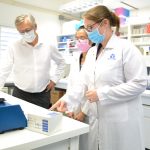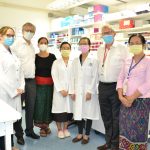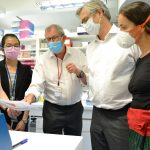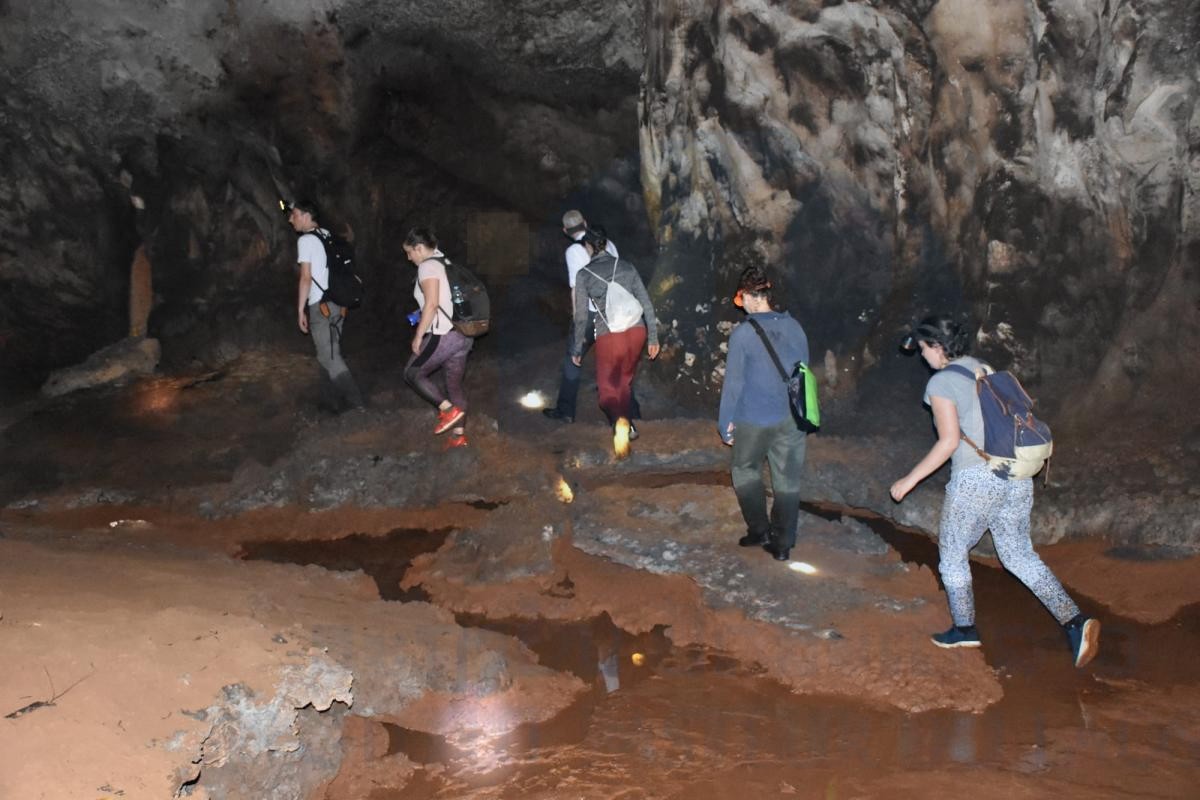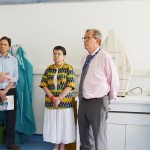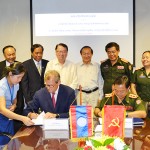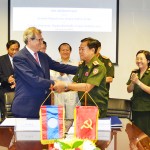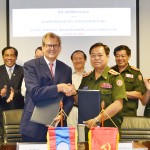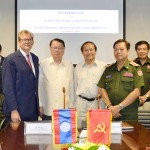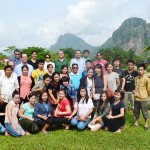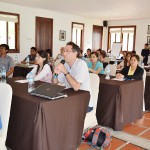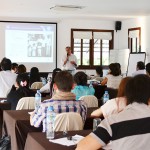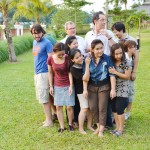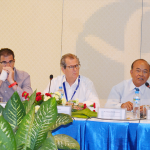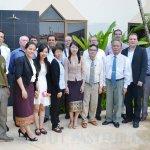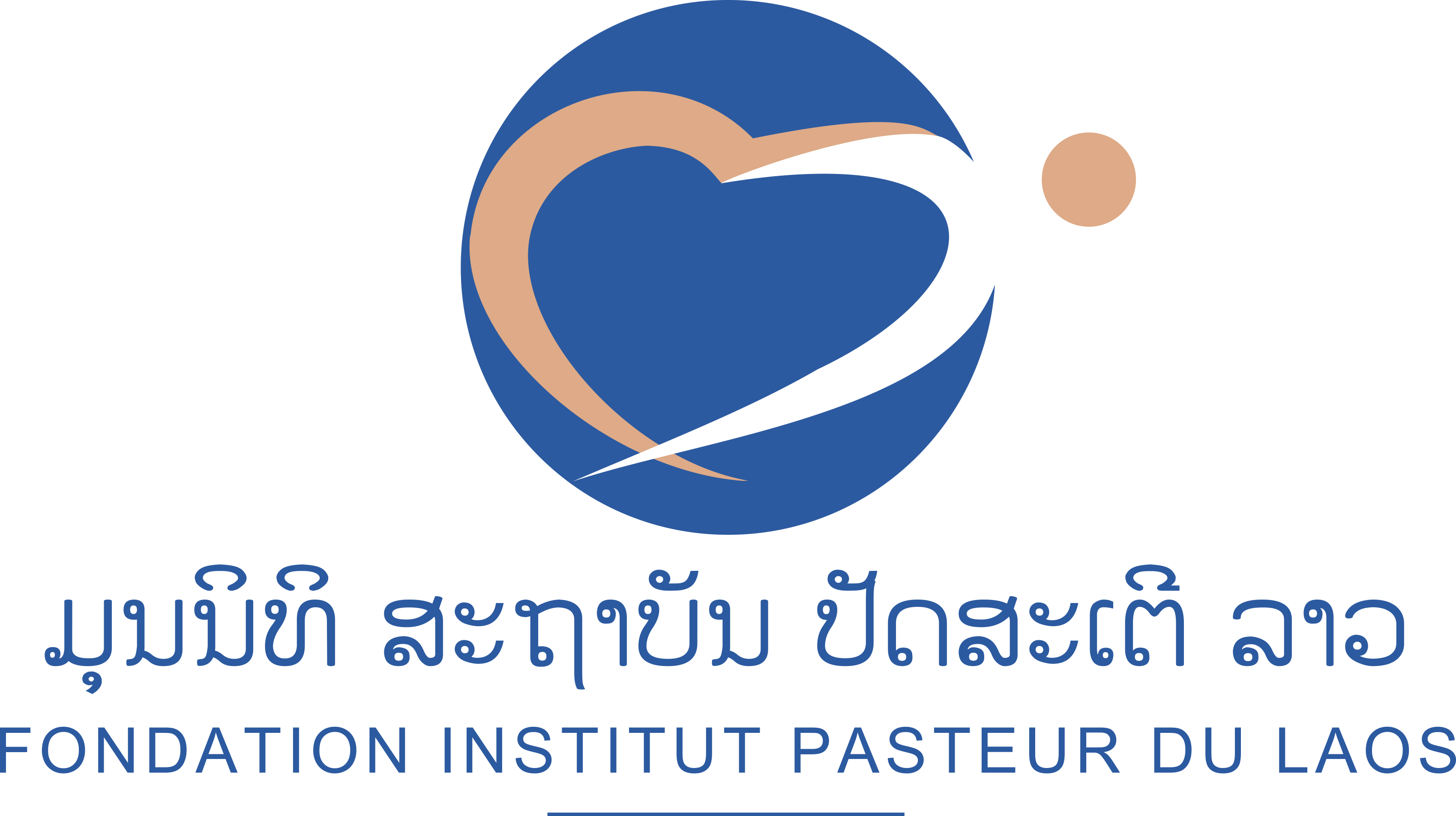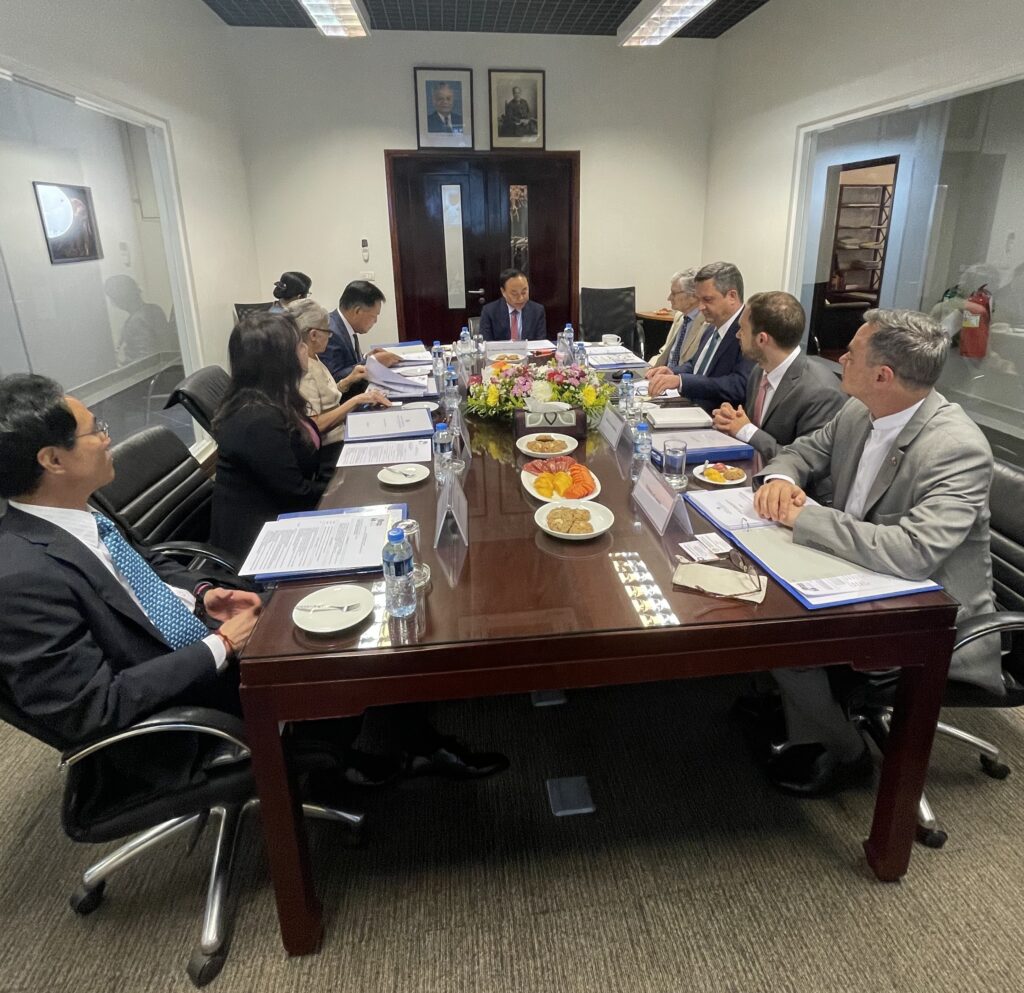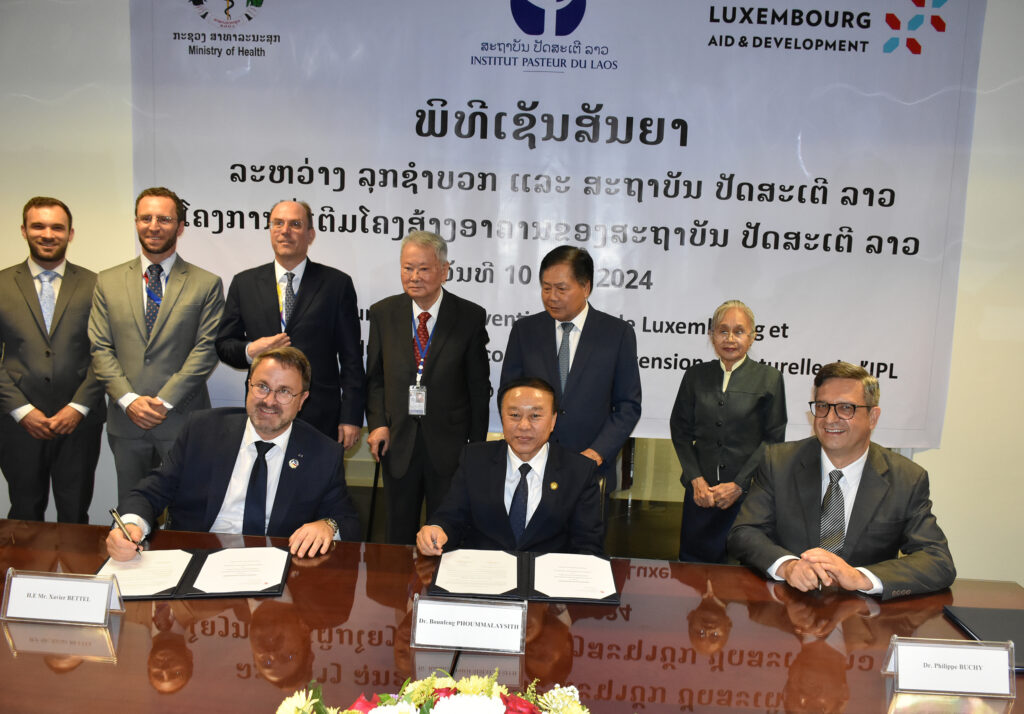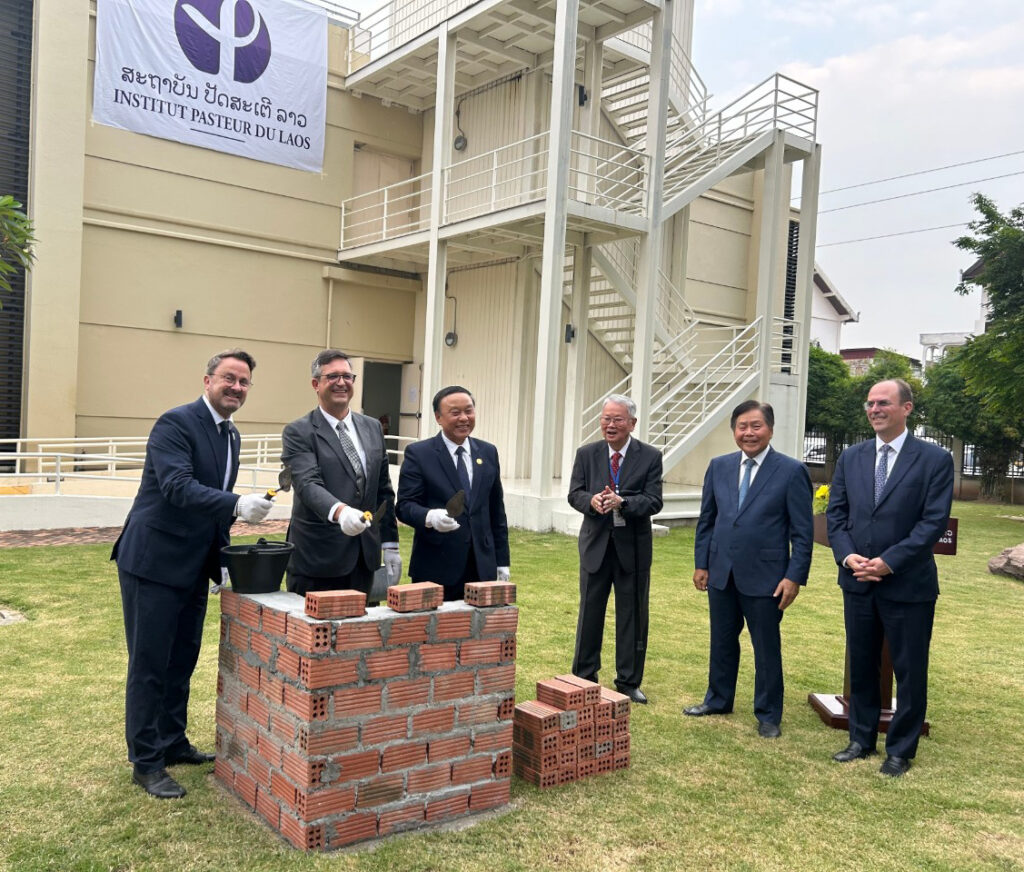News
28th April 2025
16th Board of Directors meeting of Institut Pasteur du Laos, 3rd Mar. 2025
The meeting was chaired by H.E. Dr Bounfeng Phoummalaysith (Minister of Health) and attended by H.E. Dr Bounkong Syhavong (Board Member, ex-Minister of Health), Prof. Manivanh Souphanthong (Board Member, ex-Dean of University of Health Sciences, Laos), Prof. Yves Buisson (Board Member, French Academy of Medicine), Dr Marc Jouan (Board member, Director of Institut Pasteur of New Caledonia), H.E. Mrs SivLeng Chhuor (Observer, Ambassador of France in Laos), H.E. Mr Tsutomu Koizumi (Observer, Ambassador of Japan in Laos), Mr Kent Vachon (Observer, Chargé d’Affaires and Head of office of Embassy of Canada in Laos), Mr Frank Peiffer (Observer, Representative of the Embassy of Luxembourg in laos), Dr Darouny Phonekeo (Deputy Director, IPL), Mr Pascal Masse-Navette (CFO, IPL), Dr Philippe Buchy (General Director, IPL).
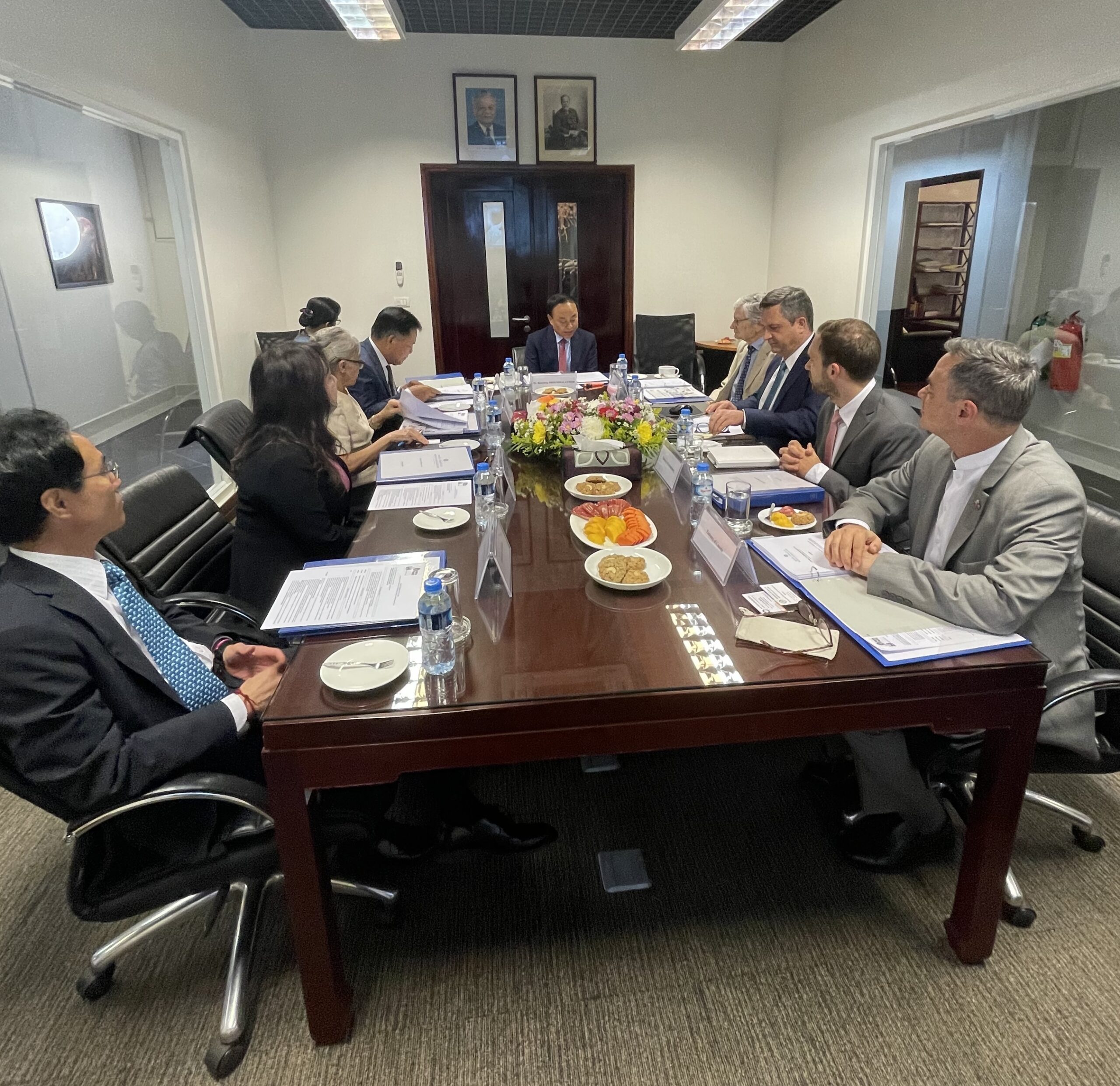
10th December 2024
New video to promote Institut Pasteur du Laos activities.
Thanks to the Ministry of Health, Department of Health Personnel (DHP), and to the Korea Foundation for International Healthcare, the Institut Pasteur du Laos invites you to look at the video presenting its activities.
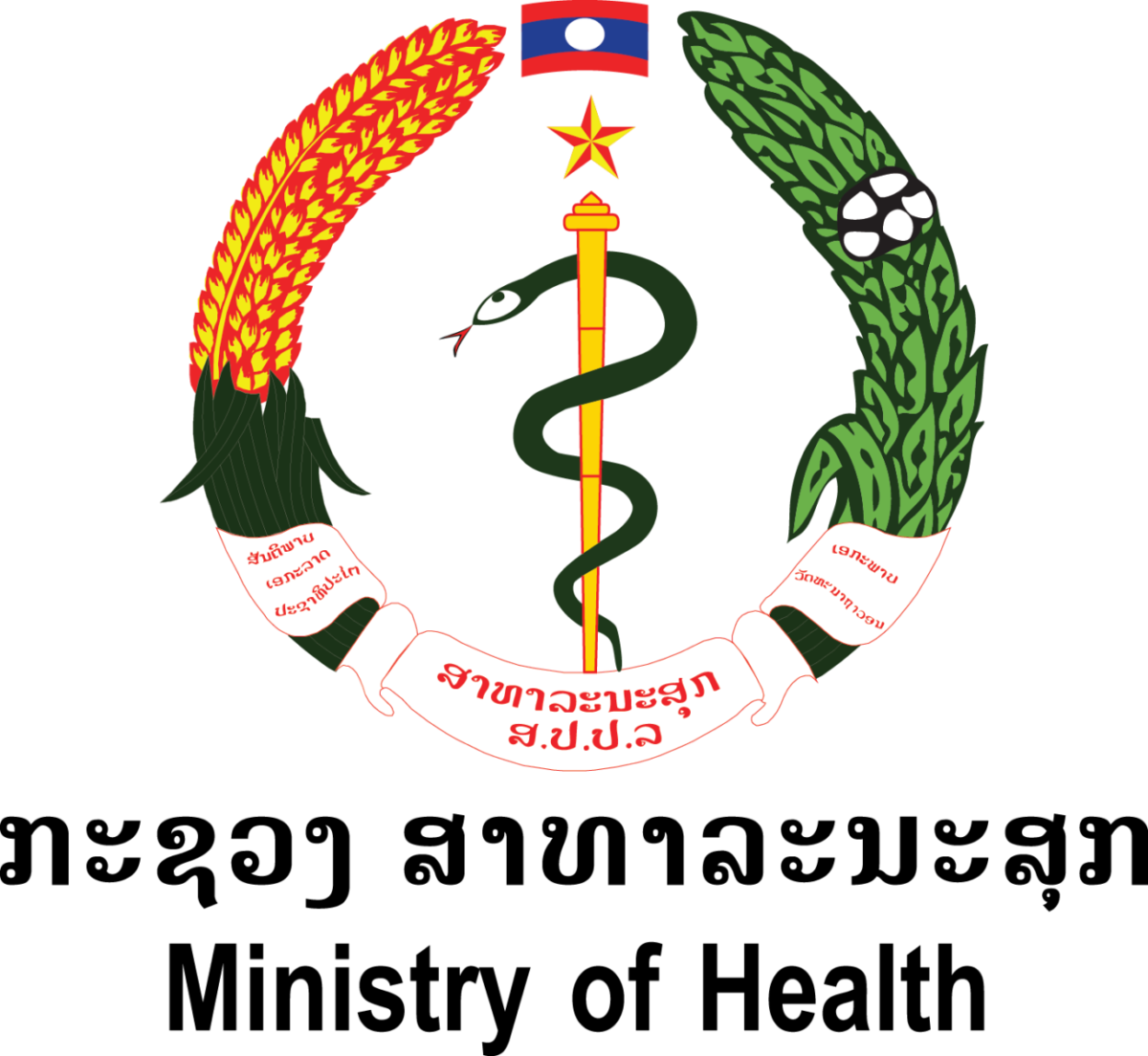 |
 |
26th November 2024
Scientists at the Institut Pasteur du Laos receive grant funding for tracking avian influenza viruses in live bird markets using new technologies.
Infections with avian influenza viruses (AIVs) can cause severe respiratory illness with high fatality rates in humans. Live bird markets (LBMs) are known to facilitate recombination and transmission of AIVs with pandemic potential.
To address this issue, the Virology Laboratory at the Institut Pasteur du Laos has received a $150,000 grant from the International Pathogen Surveillance Network (IPSN), to establish a pilot genomic surveillance program to characterize AIVs from LBMs in Northern and Central Laos. Samples from the environment and poultry will be collected and screened for AIV to identify risk factors for exposure. The work is expected to provide early-warning of AIVs with pandemic potential in Laos, and help policymakers make informed public health decisions.
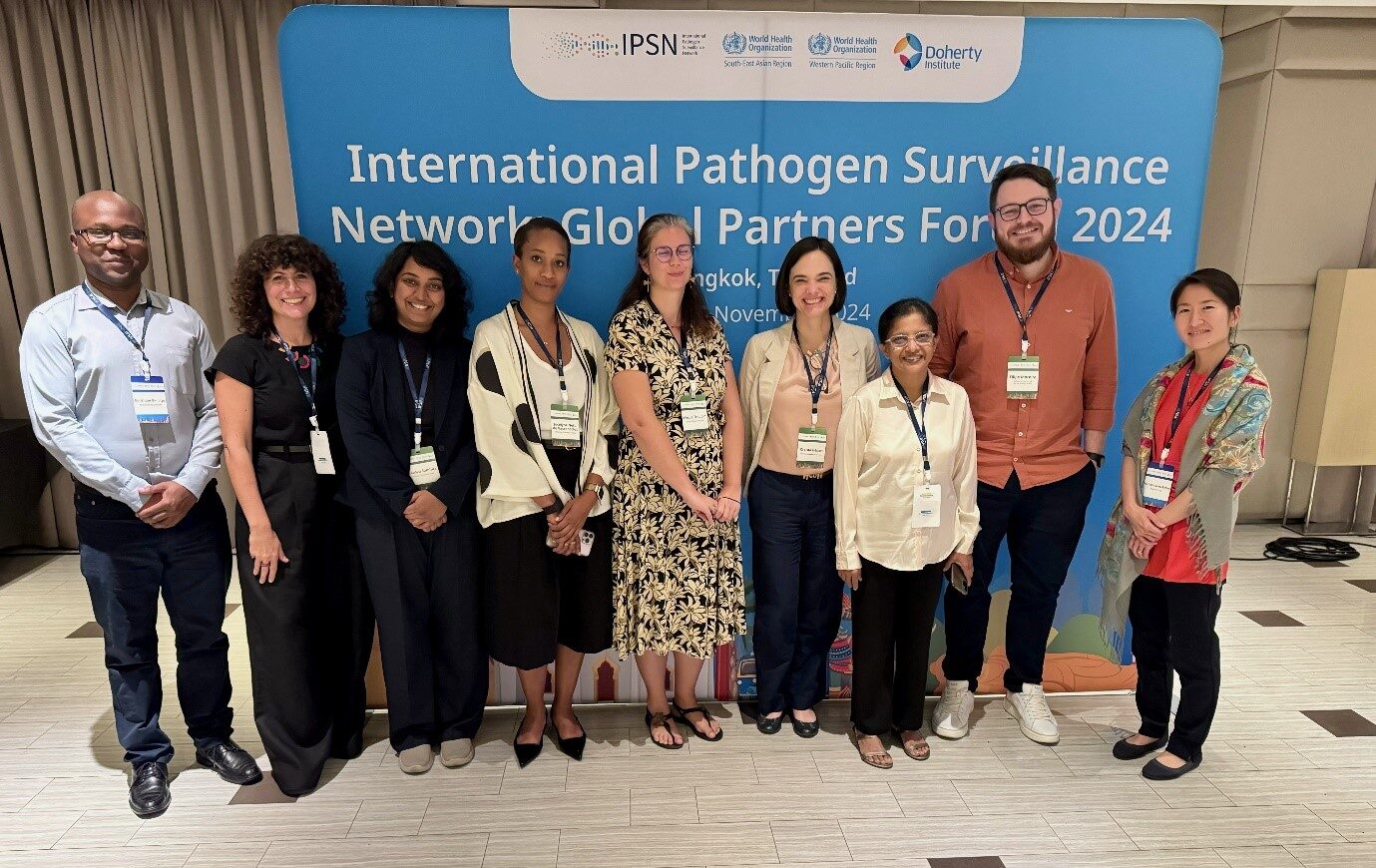
Grant recipients with representatives from funding bodies.
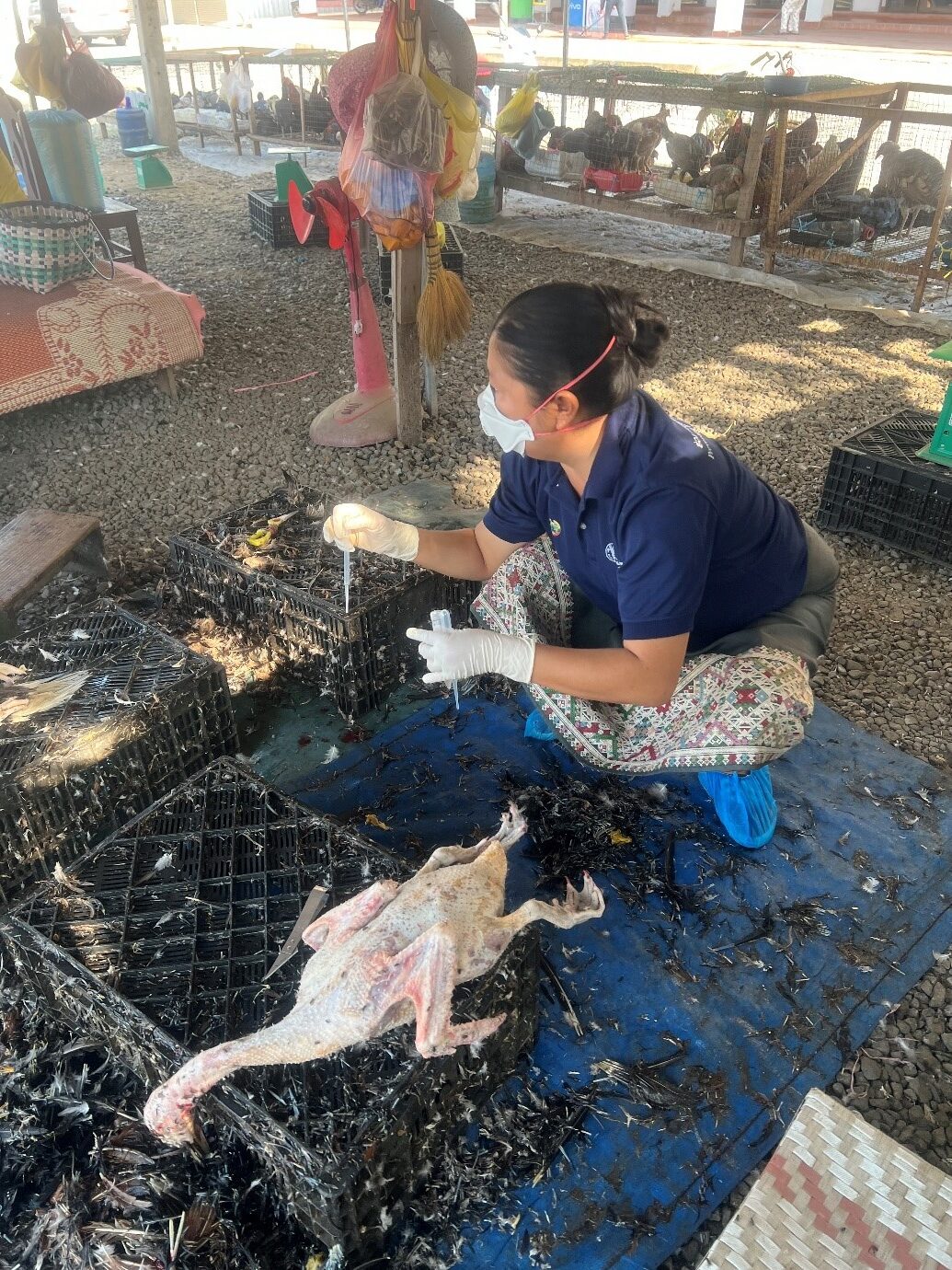
Sample collection at LBMs, Luang Prabang, November 2024.
For more information: “International Pathogen Surveillance Network announces first recipients of grants to better understand disease threats”. https://www.who.int/news/item/26-11-2024-international-pathogen-surveillance-network-announces-first-recipients-of-grants-to-better-understand-disease-threats
31th October 2024
Signature, on 10th October 2024, of a convention between the government of the Grand-Duchy of Luxembourg represented by H.E. Vice-Prime Minister Xavier Bettel and Institut Pasteur du Laos represented by H.E. Minister of Health Dr. Bounfeng Phoummalaysith and Dr. Philippe Buchy, General Director. A groundbreaking ceremony marked the launch of the construction of new laboratories at the Institut Pasteur du Laos for a total amount of 837,000 Euros. Number of Lao and foreigner Officials attended the ceremony.
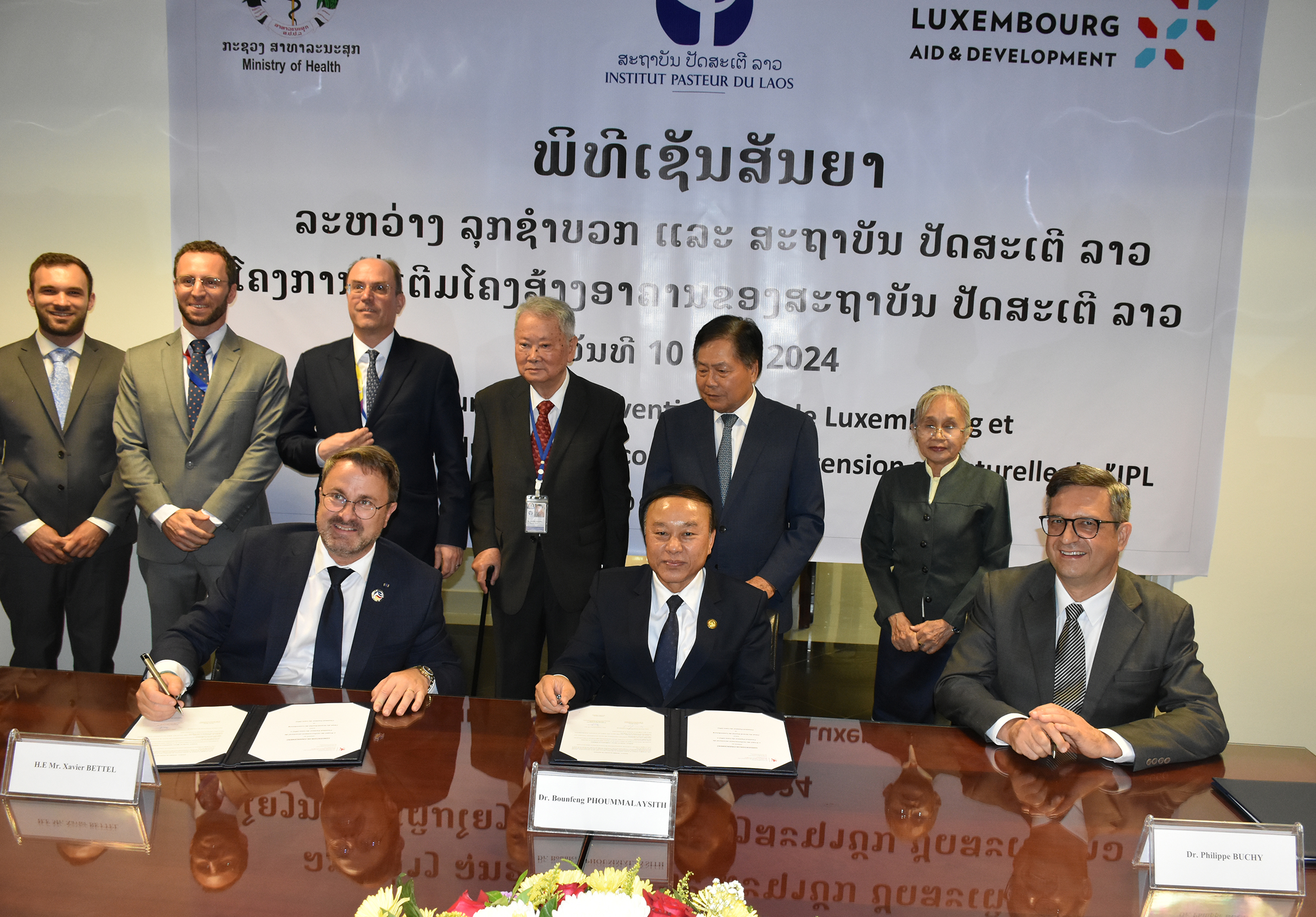
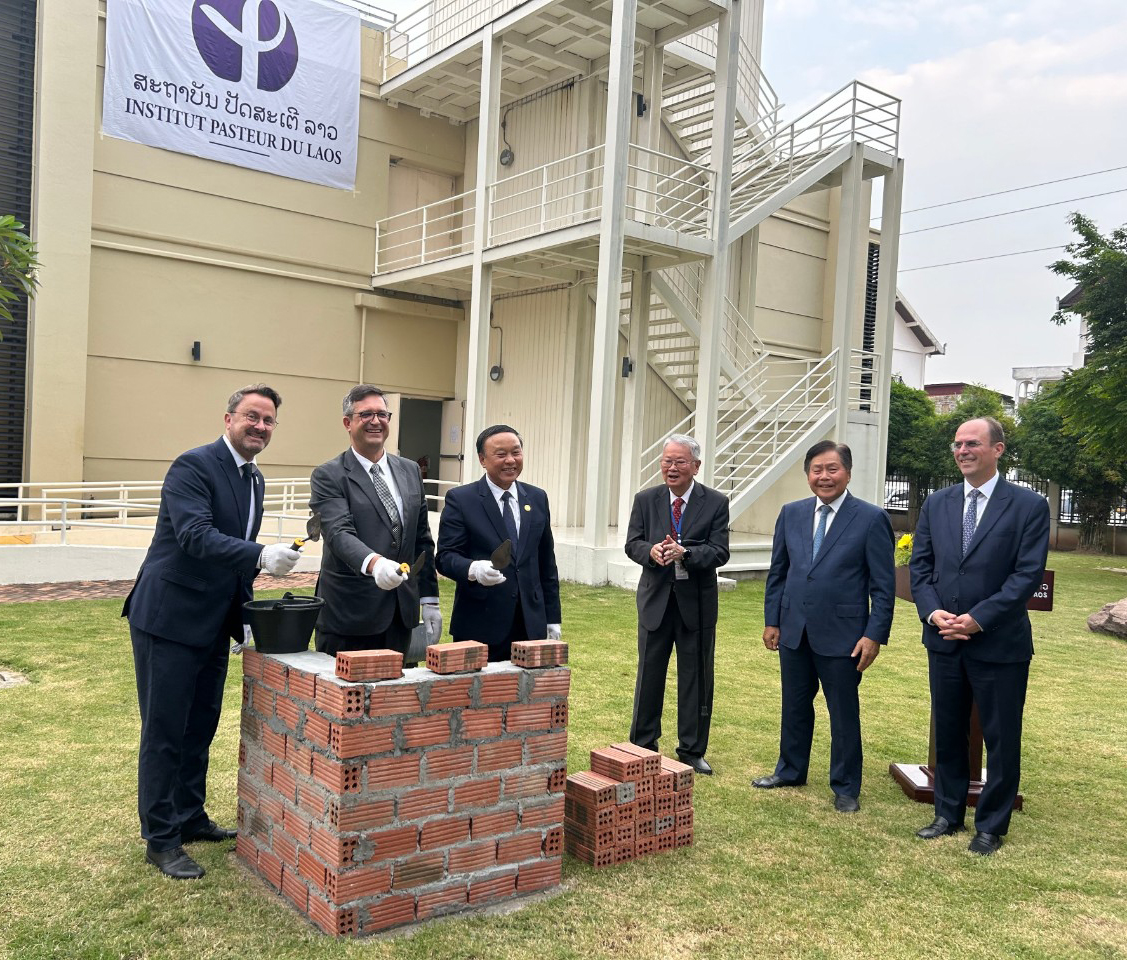
—————————————————————————————————————————————————————————————-
22th March 2024
15th Board of Directors meeting of Institut Pasteur du Laos, 29 Feb. 2024
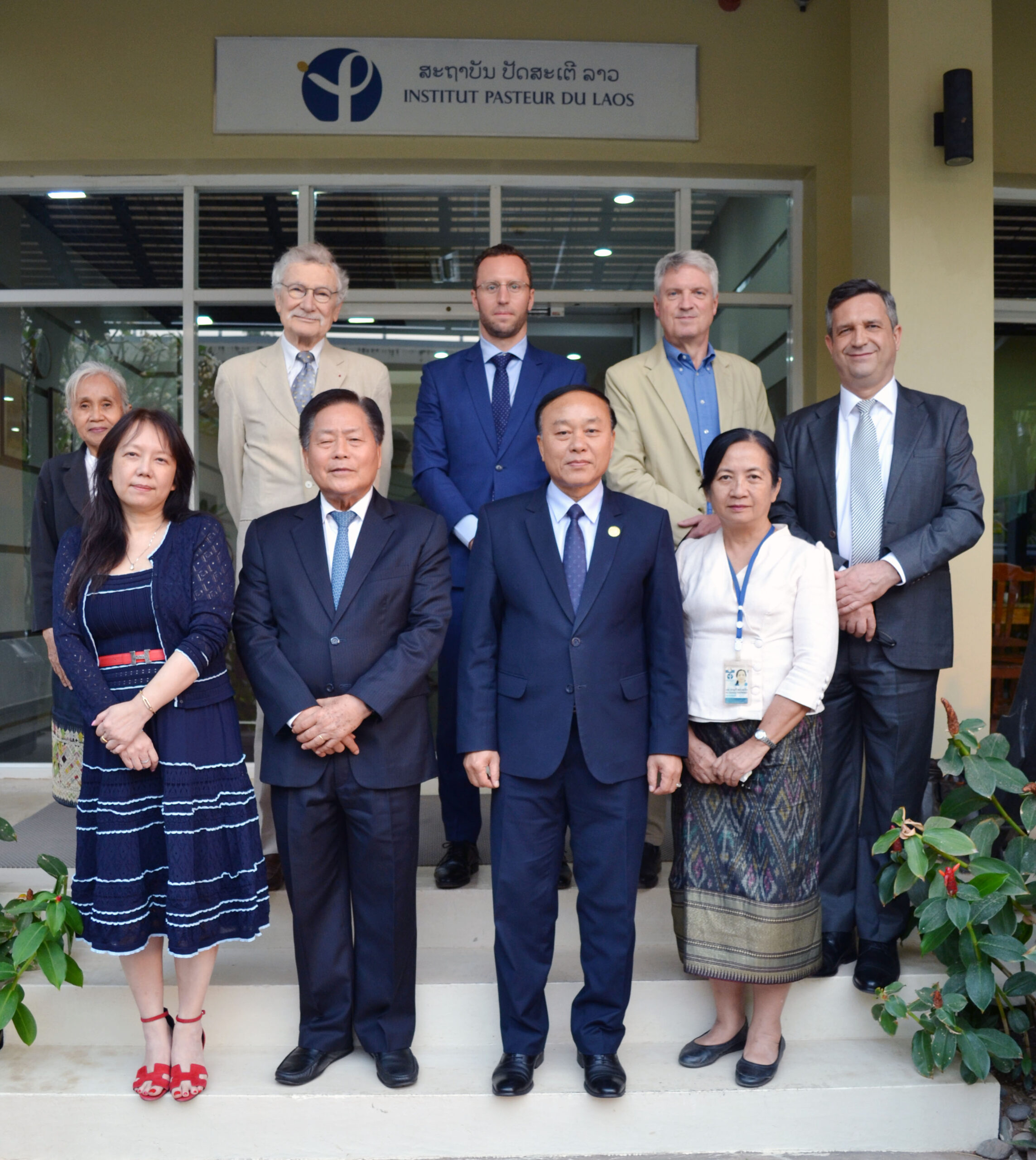
From the left, 1st row: H.E. Mrs SivLeng Chhuor (Ambassador of France, Observer), H.E. Dr Bounkong Syhavong (Board Member), H.E. Dr Bounfeng Phoummalaysith (Minister of Health, Chairman), Dr Darouny Phonekeo (IPL’s Deputy Director). From the left, 2nd row: Dr Manivanh Souphanthong (Board Member), Prof. Yves Buisson (Board Member), Mr Thomas Lammar (Chargé d’Affaires a.i., Embassy of Grand Duchy of Luxembourg, Observer), Mr Bob Paquin (Chargé d’Affaires, Embassy of Canada), Dr Philippe Buchy (IPL’s General Director).
—————————————————————————————————————————————————————————————-
1st December 2023
Dr Paul Brey, former Director General of IPL (center) was made Officer of the Order of Merit of the Grand Duchy of Luxembourg by H.E. Mr Patrick Hemmer, Ambassador of Luxembourg to Thailand, Laos, Malaysia, Singapore, Vietnam and ASEAN (1st on the right) in the presence of H.E. Dr Bounfeng Phoummalaysith, Minister of Health of Lao PDR (1st on the left), H.E. Dr Ponmek Dalaloy, former Minister of Health of Lao PDR (2nd from the left), H.E. Dr Bounkong Syhavong, former Minister of Health of Lao PDR (2nd from the right).
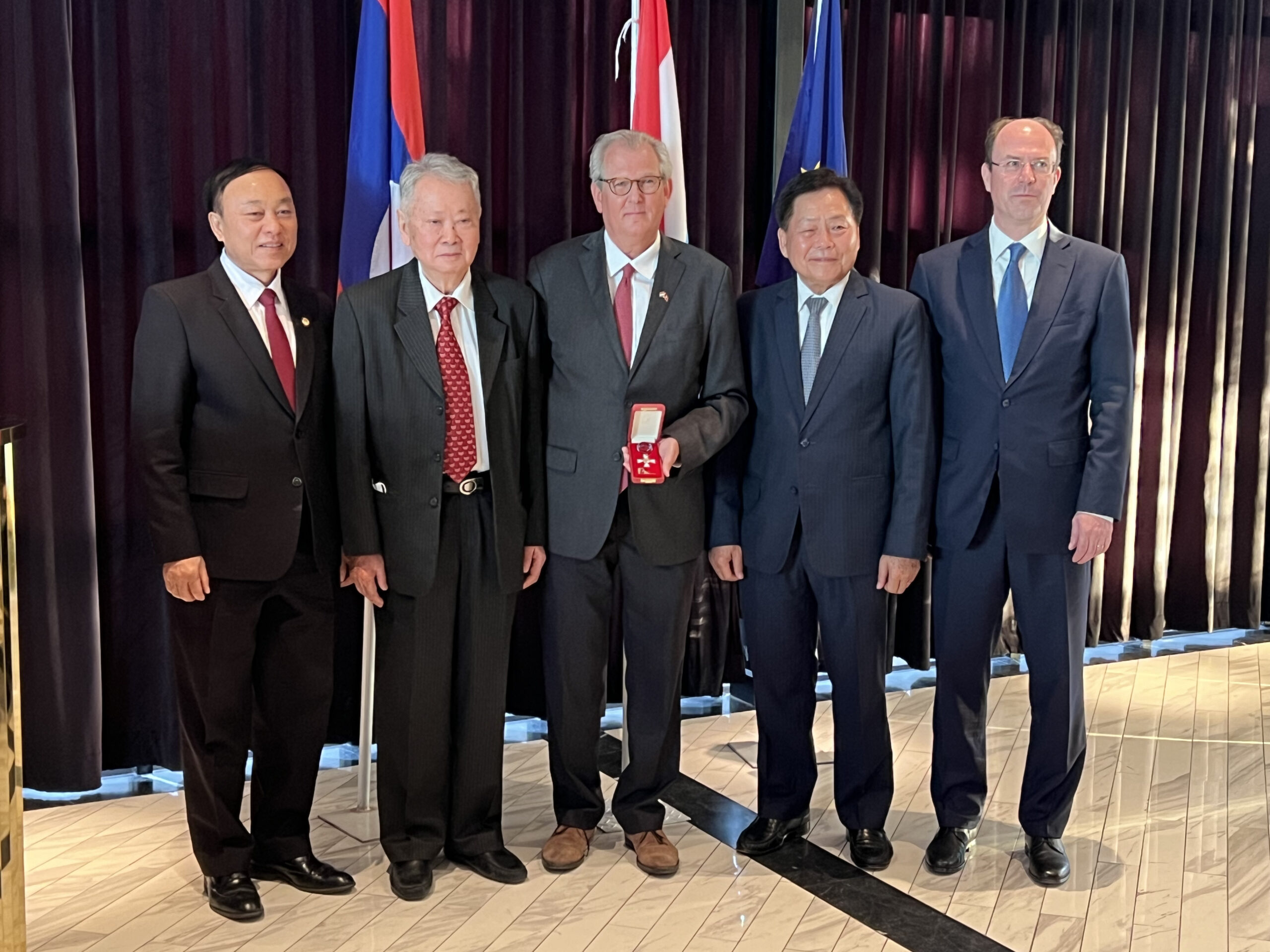
—————————————————————————————————————————————————————————————-
04th February 2021
IPL is proud to announce that USAID ![]() has just granted a one-year program in the framework of the COVID-19 threat. This program aims at increasing the quantity and quality of the COVID-19 diagnostics in Lao PDR through an increase of samples tested, genetic analysis of COVID-19 strains by genomic sequencing, as well as capacity building through training of laboratory technicians dedicated to COVID-19 diagnostics. We would like to express our deep gratitude to USAID and the USA Embassy in Vientiane for assisting IPL to significantly increase its impact on the diagnostics of COVID-19 in Lao PDR.
has just granted a one-year program in the framework of the COVID-19 threat. This program aims at increasing the quantity and quality of the COVID-19 diagnostics in Lao PDR through an increase of samples tested, genetic analysis of COVID-19 strains by genomic sequencing, as well as capacity building through training of laboratory technicians dedicated to COVID-19 diagnostics. We would like to express our deep gratitude to USAID and the USA Embassy in Vientiane for assisting IPL to significantly increase its impact on the diagnostics of COVID-19 in Lao PDR.
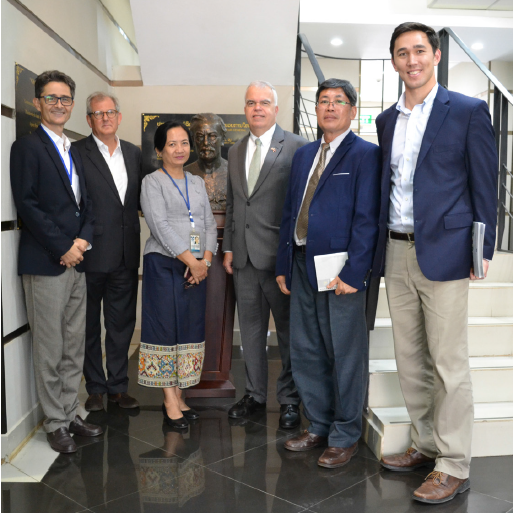
—————————————————————————————————————————————————————————————-
04th February 2021
Thanks to the British ![]() Embassy in Laos, a project aiming to investigate the origin and natural history of SARS Coronaviruses in bats has been funded. Institut Pasteur du Laos scientists along with bat experts from the Lao National University will carry out field collections of bats in caves from Northern Laos in January 2021. Biological samples will then be screened for SARS-like coronaviruses using molecular techniques (RT-PCR and genomic sequencing).
Embassy in Laos, a project aiming to investigate the origin and natural history of SARS Coronaviruses in bats has been funded. Institut Pasteur du Laos scientists along with bat experts from the Lao National University will carry out field collections of bats in caves from Northern Laos in January 2021. Biological samples will then be screened for SARS-like coronaviruses using molecular techniques (RT-PCR and genomic sequencing).
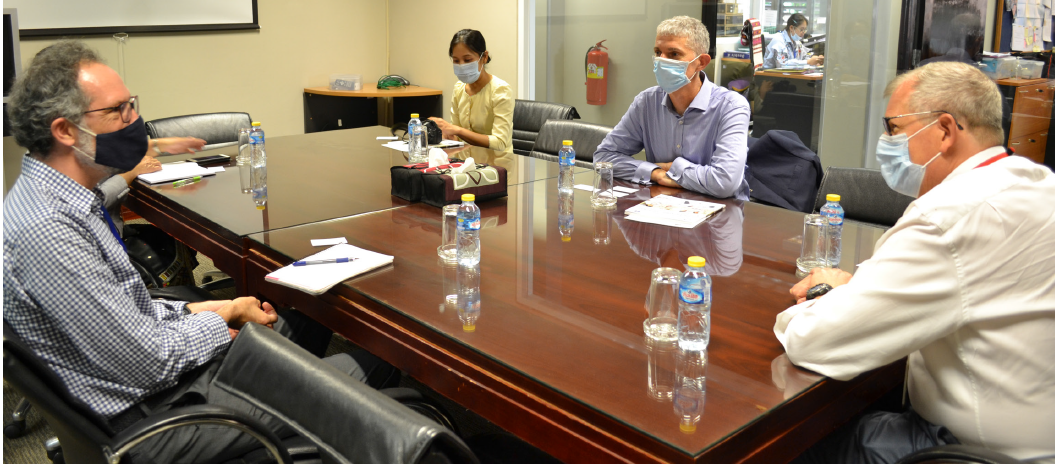
—————————————————————————————————————————————————————————————-
19th May 2020
l’Agence française de développement (AFD), dans le cadre de l’initiative « COVID-19 – Santé en Commun » portée par la France ![]() , a octroyé un important financement à l’Institut Pasteur du Laos. Une partie du financement va servir à acquérir des réactifs et consommables pour participer à la lutte contre l’épidémie de COVID-19 en établissant le diagnostic des cas suspects de COVID-19. Une autre partie va permettre de réaliser une étude sur la seroprévalence de la population et donc tenter de détecter les cas asymptomatiques ayant été en contact du virus et ayant développé des anticorps.
, a octroyé un important financement à l’Institut Pasteur du Laos. Une partie du financement va servir à acquérir des réactifs et consommables pour participer à la lutte contre l’épidémie de COVID-19 en établissant le diagnostic des cas suspects de COVID-19. Une autre partie va permettre de réaliser une étude sur la seroprévalence de la population et donc tenter de détecter les cas asymptomatiques ayant été en contact du virus et ayant développé des anticorps.
22nd April 2020
Institut Pasteur du Laos would like to express its deepest gratitude to the Government of the Grand Duchy of Luxembourg ![]() for their unrelenting support to IP Laos. Luxembourg was one of the founding donors to establish the Institut Pasteur du Laos and continues to provide support via the PARECIDS programs, as well as this special COVID-19 donation to purchase equipment to increase IPL’s speed and diagnostic capacity for COVID-19
for their unrelenting support to IP Laos. Luxembourg was one of the founding donors to establish the Institut Pasteur du Laos and continues to provide support via the PARECIDS programs, as well as this special COVID-19 donation to purchase equipment to increase IPL’s speed and diagnostic capacity for COVID-19
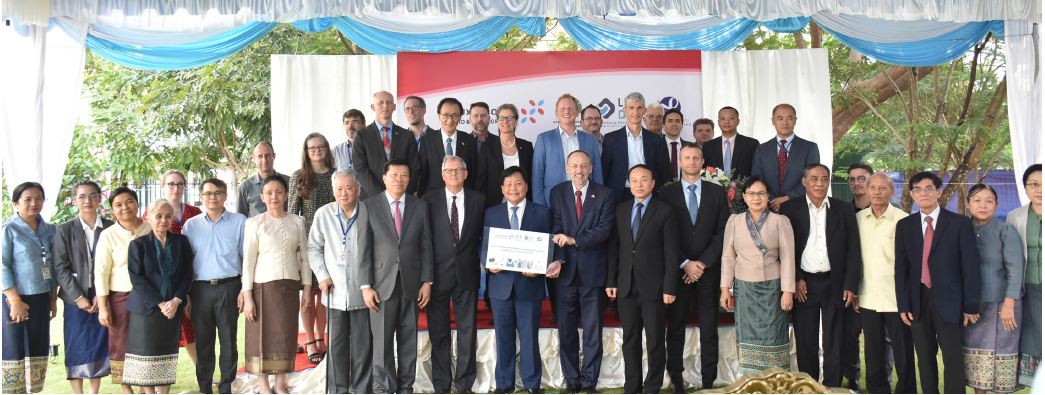
—————————————————————————————————————————————————————————————-
06th April 2020
Special thanks to Global Affairs Canada ![]() and the Canadian people for their continuous support to Institut Pasteur du Laos for the purchase of personal protection equipment and reagents to be able to test for COVID-19 !
and the Canadian people for their continuous support to Institut Pasteur du Laos for the purchase of personal protection equipment and reagents to be able to test for COVID-19 !
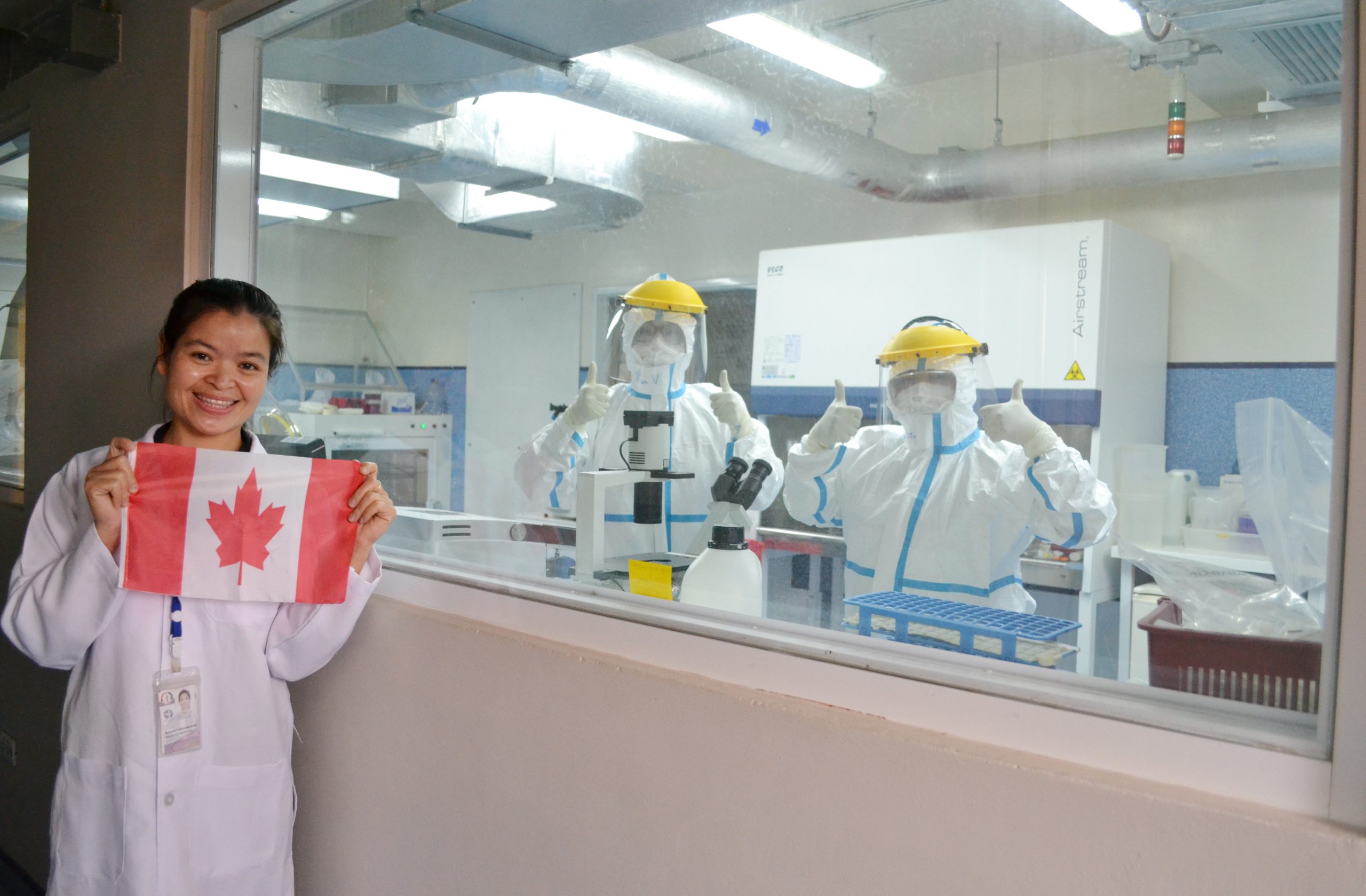
—————————————————————————————————————————————————————————————-
06th May 2020
The European Union ![]() has generously provided IP Laos with 1000 serological rapid tests for COVID-19 and 1000 surgical masks. In addition to the support of Canada, Luxembourg and France for genetic and serological COVID-19 testing, the rapid antibody tests from the EU allow IP Laos to test individuals in less than 30 minutes who were in contact knowingly or unknowingly with COVID-19.
has generously provided IP Laos with 1000 serological rapid tests for COVID-19 and 1000 surgical masks. In addition to the support of Canada, Luxembourg and France for genetic and serological COVID-19 testing, the rapid antibody tests from the EU allow IP Laos to test individuals in less than 30 minutes who were in contact knowingly or unknowingly with COVID-19.
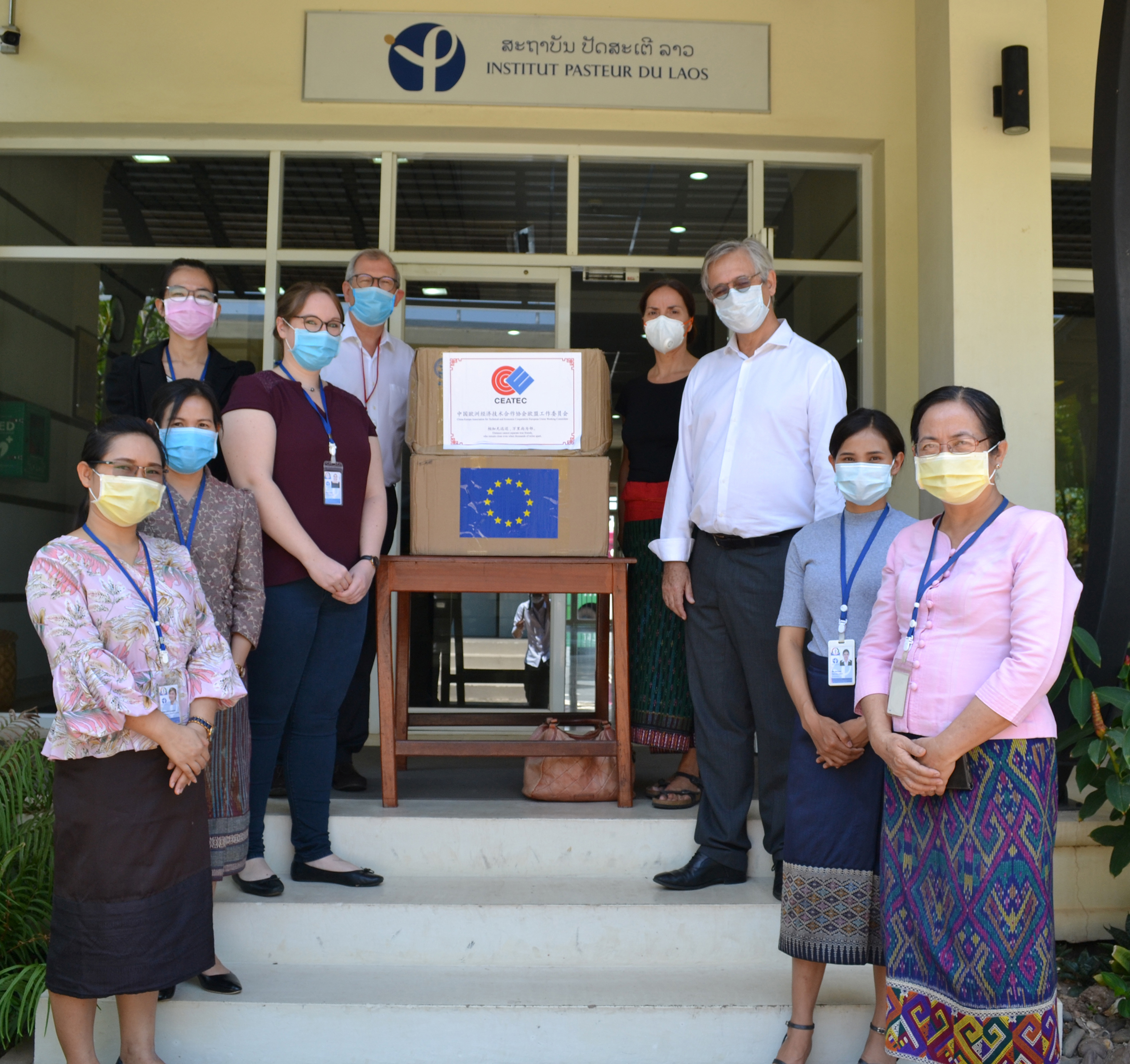
—————————————————————————————————————————————————————————————-
13th February 2019
IP Laos virology team testing samples from patients suspected of having COVID-2019. At present no COVID-2019 confirmed case has been found in Lao PDR.
26th August 2019
CONTOURNER LA RÉSISTANCE AUX INSECTICIDES DES VECTEURS DE MALADIES VIRALES
Pour juguler les maladies virales endémiques ou épidémiques, qui sont de véritables fléaux dans nombre de régions du monde, il est essentiel de contrôler leurs vecteurs, généralement des insectes, pour les empêcher de proliférer. Cependant, de nombreuses espèces se sont adaptées en développant une résistance aux molécules utilisées. Plusieurs instituts du Réseau se sont mobilisés pour étudier ce phénomène et développer des stratégies alternatives. Le moustique, vecteur des maladies virales et première cause animale de mortalité humaine, concentre naturellement une grande partie des efforts de recherche.
la surveillance DES POPULATIONS DE MOUSTIQUES RESISTANTS
Chikungunya, dengue, Zika… Ces maladies virales dangereuses pour l’homme, sont transmises par différentes espèces de moustiques. En l’absence de vaccins efficaces (excepté pour la fièvre jaune et l’encéphalite japonaise) et/ou de traitements spécifiques, la lutte contre ces maladies passe par le contrôle, souvent chimique, des vecteurs qui les transmettent. En complément, les populations sont encouragées à nettoyer les gites larvaires. Ces stratégies ont pour objectif de limiter la densité de moustiques qui est associée à un risque plus élevé de transmission des arbovirus.
Cependant, l’utilisation massive des insecticides a pour conséquence l’adaptation des populations d’insectes à ces molécules et donc une perte d’efficacité de ceux-ci.
C’est le cas du moustique Aedes aegypti, vecteur notamment de la dengue et d’autres arbovirus. Un exemple de molécule utilisée à l’échelle mondiale contre les moustiques adultes est la deltaméthrine, un pyréthrinoïde commercialisé depuis une vingtaine d’années et largement appliqué en santé publique et en agriculture du fait de sa faible toxicité pour l’homme. Dans un contexte de forte résistance dans la plupart des territoires français d’outre-mer, le projet REAGIR[1] financé par l’ANSES a permis de poursuivre la collaboration entre l’Institut Pasteur de la Guyane et celui de Nouvelle-Calédonie. Il a notamment eu pour objectif de mieux comprendre l’évolution de la résistance aux pyréthrinoïdes et ses mécanismes au sein des populations d’Aedes aegypti. Les populations de Guyane se sont avérées beaucoup plus résistantes à la deltaméthrine que celles de Nouvelle-Calédonie. Les marqueurs moléculaires de résistance ont également pu être identifiés et démontrent une résistance quasiment fixée en Guyane. A l’Institut Pasteur de Guadeloupe, un état des lieux sur la situation chez les moustiques Aedes aegypti et Culex quinquefasciatus a démontré que les deux espèces ont développé une résistance très importante à plusieurs insecticides, avec plusieurs mécanismes de résistance identifiés. Egalement, une Action Concertée Inter-Pasteurienne (ACIP) portée par l’Institut Pasteur de Bangui en association avec l’Institut Pasteur de Madagascar et de la Guyane, a investigué la résistance des Aedes albopictus et Aedes aegypti afin de rechercher les mécanismes moléculaires et d’identifier des marqueurs fiables et précoces pour la surveillance.
Plus globalement, le constat est sans appel: partout dans le monde, les insecticides, utilisés en masse sont de moins en moins efficaces. L’exposition répétée des populations de moustiques à ces insecticides sélectionne les individus résistants. Face à ce constat, l’urgence est de dresser un état des lieux, de mener une surveillance régulière afin de mettre en place des stratégies de gestion de la résistance et des méthodes de lutte alternatives.
LA GESTION DE LA RESISTANCE AU LAOS ET AU CAMBODGE
Le Laos et le Cambodge sont régulièrement frappés par des épidémies de dengue. Les pouvoirs publics de ces deux pays ne restent pas inactifs. Les actions mises en oeuvre, consistant en l’épandage de grandes quantités de larvicides de la familles des pyréthrinoïdes, se sont révélées jusqu’à présent nuisibles et surtout inefficaces, et pour cause ! L’Institut Pasteur du Laos et l’Institut Pasteur du Cambodge ont en effet chacun mis en évidence que tous les moustiques sont devenus résistants aux insecticides utilisés pour la lutte. Le Laos[2] a rapidement réagi aux recommandations formulées par les instituts, en interdisant le téméfos, pour le remplacer par un insecticide biologique, le Bacillus thuringiensis var. israelensis (BTI) déjà utilisé à l’échelle mondiale et pour lequel les moustiques ne sont pas résistants. Les deux Instituts ont l’habitude de travailler ensemble sur la thématique des insectes vecteurs. Ils sont en effet de nouveau partenaires dans le cadre du deuxième volet du projet ECOMORE (ECOnomic Development, ECOsystem MOdifications, & Emerging Infectious Diseases Risk Evaluation), financé jusqu’en 2020 par l’Agence Française de Développement.
DES STRATEGIES ALTERNATIVES A L’ETUDE
Parmi les stratégies alternatives aux insecticides, l’une des plus prometteuses, testée en Nouvelle-Calédonie, a pour nom Wolbachia[3]. Il s’agit d’une bactérie dotée de propriétés particulièrement intéressantes : bien qu’Aedes aegypti en soit dépourvu naturellement, lorsque Wolbachia est innoculée artificiellement au moustique, elle s’y établit et se transmet à la descendance. Surtout, la bactérie ralentit la multiplication du virus dans le moustique et rend celui-ci inapte à transmettre le virus lors d’une piqure. Le lacher des moustiques infectés dans la nature entraine la diffusion de la bactérie dans les populations Aedes aegypti et donc prévient la transmission de la maladie.
A l’Institut Pasteur de Guadeloupe, la recherche de méthodes alternatives a pour but d’identifier des phéromones du moustiques d’Aedes aegypti. L’objectif est de mettre en place des dispositifs d’attraction/répulsion des moustiques afin de réduire le contact homme-vecteur ou de créer une confusion sexuelle pour perturber l’accouplement. Une première cartographie d’odeurs émises par le moustique Aedes aegypti tout au long de son dévéloppement a été réalisée sur la période 2016-2018[4].
[1] Avec le LECA (Grenoble) et l’IRD (Montpellier). Dusfour I. Résistance aux pyréthrinoïdes chez Aedes aegypti: évaluation de nouveaux candidats insecticides et étude du phénomène de réversion. Les cahiers de la Recherche. Santé, Environnement, Travail, ANSES, 2017.
[2] Alternative insecticides for larval control of the dengue vector Aedes aegypti in Lao PDR: insecticide resistance and semi-field trial study. Marcombe S et al. Parasit Vectors, décembre 2018. Doi: 10.1186/s13071-018-3187-8.
[3] Avec l’université de Monash, la DASS Nouvelle Calédonie et la mairie de Noumea : www.eliminatedengue.com
[4] Avec l’Académie des Sciences de l’Agriculture de Shandong, Chine. Cartography of Odor Chemicals in the Dengue Vector Mosquito (Aedes aegypti L., Diptera/Culicidae). Wang F et al. Scientific Reports, 11 juin 2019. Doi:10.1038/s41598-019-44851-7
—————————————————————————————————————————————————————————————-
26th July 2019
Succès du second cours international d’entomologie médicale à Ventiane (Laos) <<More>>
—————————————————————————————————————————————————————————————-
12th June 2019
Outbreak Readiness and Preparedness in the Lancang Mekong Cooperation Region (LMCR) Kunming, CHINA – May 28 and 29, 2019
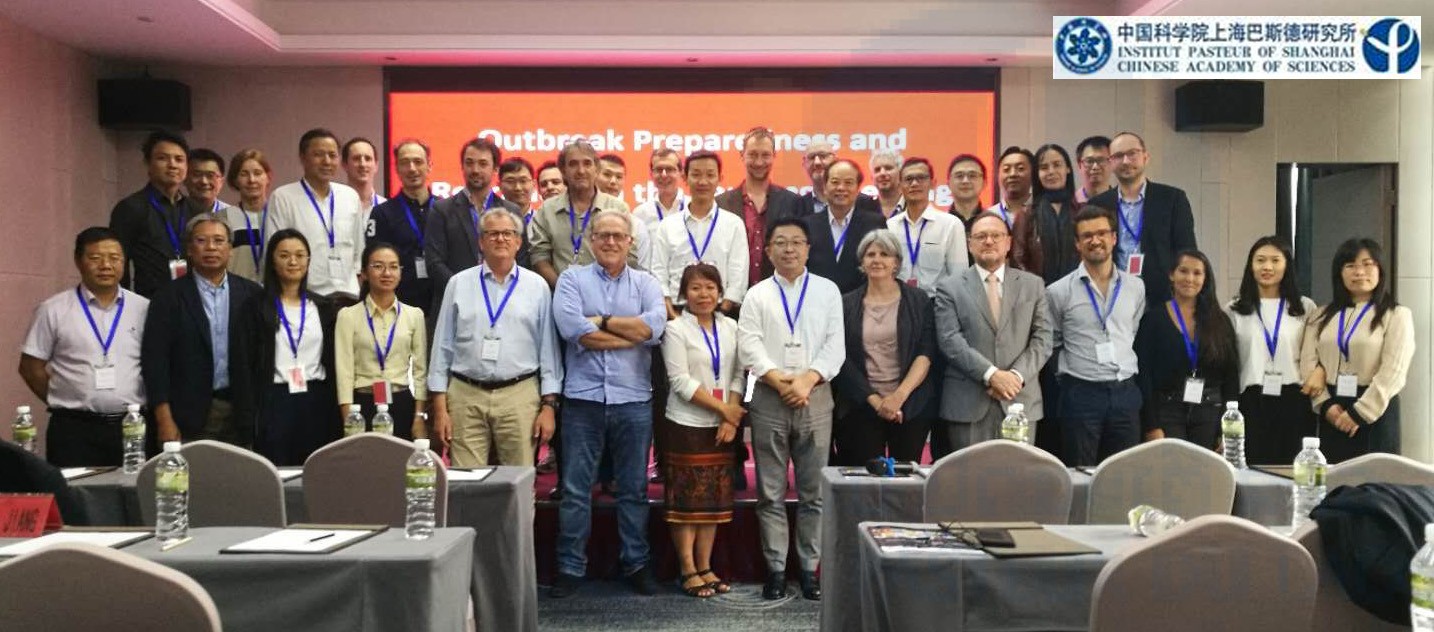 The first edition of the “Outbreak Readiness and Preparedness in the Lancang Mekong Cooperation Region (LMCR)” scientific symposium was part of an alliance between several Instituts Pasteur, the Yunnan government and the Mérieux Foundation to develop a platform in the Yunnan province capable of conducting research for preparedness of emergent and re-emergent infectious diseases. The aim of this symposium was for scientists coming from multiple disciplines such as research scientists, clinicians, public health professionals, health workers and policy makers to share their work and views on how to best manage infectious diseases in South-East Asia, particularly in the Lancang Mekong Cooperation Region. The view that Yunnan is the gateway to prevent and control the next major outbreak and the urgent need to strengthen its capabilities for this mission was unanimously shared by all participants. This strong consensus has led participants to generate ideas and projects for research collaboration.
The first edition of the “Outbreak Readiness and Preparedness in the Lancang Mekong Cooperation Region (LMCR)” scientific symposium was part of an alliance between several Instituts Pasteur, the Yunnan government and the Mérieux Foundation to develop a platform in the Yunnan province capable of conducting research for preparedness of emergent and re-emergent infectious diseases. The aim of this symposium was for scientists coming from multiple disciplines such as research scientists, clinicians, public health professionals, health workers and policy makers to share their work and views on how to best manage infectious diseases in South-East Asia, particularly in the Lancang Mekong Cooperation Region. The view that Yunnan is the gateway to prevent and control the next major outbreak and the urgent need to strengthen its capabilities for this mission was unanimously shared by all participants. This strong consensus has led participants to generate ideas and projects for research collaboration.
More than 50 international experts attended this event. Thanks to the participation of Kunming Zoology Institute, CAS and Yunnan Health Commission, this meeting has gain critical support to advance the alliance for joint research facilities and program in Yunnan.
——————————————————————————————————————————————————————————————
03nd April 2019
Final meeting of the JICA/AMED SATREPS project for Parasitic Diseases in Laos
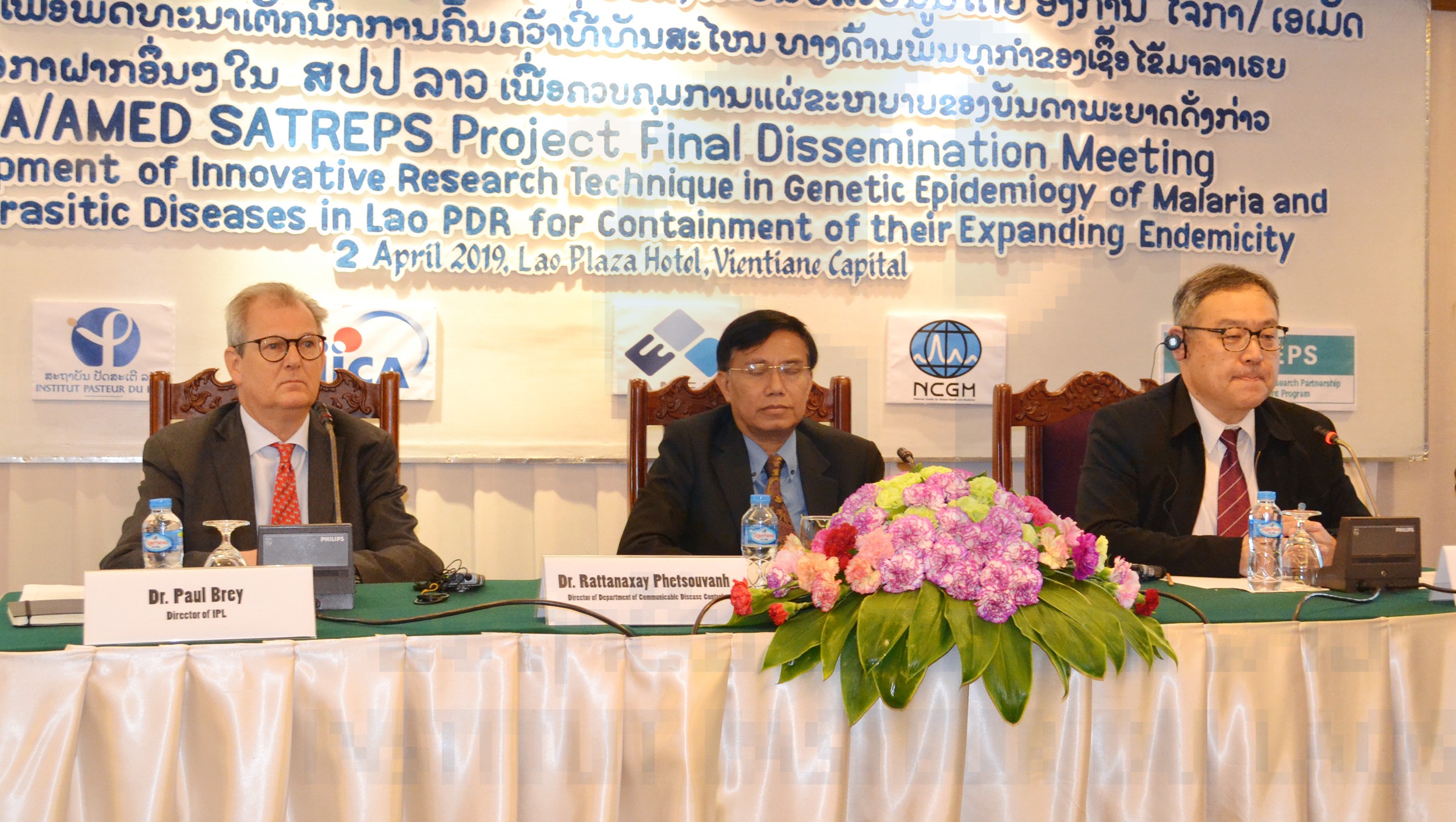
Final meeting of the JICA/AMED SATREPS project for “Development of Innovative Research Technique in Genetic Epidemiology of Malaria and Other Parasitic Diseases in Lao PDR for Containment of Their Expanding Endemicity” was held at Lao Plaza Hotel on 2nd April 2019, to disseminate outcomes of this five-years project. Dr. Shigeyuki Kano, SATREPS chief advisor from National Center for Global Health and Medicine (NCGM), Japan and Dr. Rattanaxay Phetsouvanh, Director General of Department of Communicable Diseases Control (DCDC), Ministry of Health (MOH) chaired the meeting.
Japan International Cooperation Agency (JICA) and the MOH, Laos started a unique technical cooperation project on parasitology research in Laos on May 2014, in collaboration with Japan Agency for Medical Research and Development (AMED). This project promoted joint research between Laos and Japan under the scheme of Science and Technology Research Partnership for Sustainable Development (SATREPS). This project was implemented at Institut Pasteur du Laos (IPL), MOH, led by Dr. Paul Brey, Project Manager of the SATREPS and Director of IPL, with kind support of Dr. Bouasy Hongvanthong, Project Director of the SATREPS and ex-Director of Center of Malariology, Parasitology and Entomology (CMPE), the MOH.
In this project, three important parasitic diseases in Laos, namely, Malaria, Schistosomiasis (blood fluke) and Opisthorchiasis (liver fluke) were targeted and many outcomes were produced. For example, high-sensitive and accurate diagnostic methods (PCR and LAMP methods) were developed, and many asymptomatic malaria carriers in the endemic areas were discovered by them. Rapid spreading of the drug (artemisinin) resistant malaria from the south to the north, even in Phongsaly province is another big finding through the SATREPS. In addition, the project discovered the first case of human infection with monkey malaria parasite (Plasmodium knowlesi) from Attapeu province. These findings are utilized for improving or updating national strategic plans for control and elimination of the diseases in Laos and the Mekong region.
The project not only promoted research but also strengthened capacity of healthcare workers in the provinces where the diseases were endemic, and improved monitoring system of the parasitic diseases in the country, by collaborating with the MOH and WHO. The project will be terminated on the end of April 2019. However, the Japanese researchers, JICA, Neopharma Japan, and Eiken company Japan will collaboratively continue to support Laos for achieving Malaria elimination by 2030.
————————————————————————————————————————————————————————————–
20th March 2019
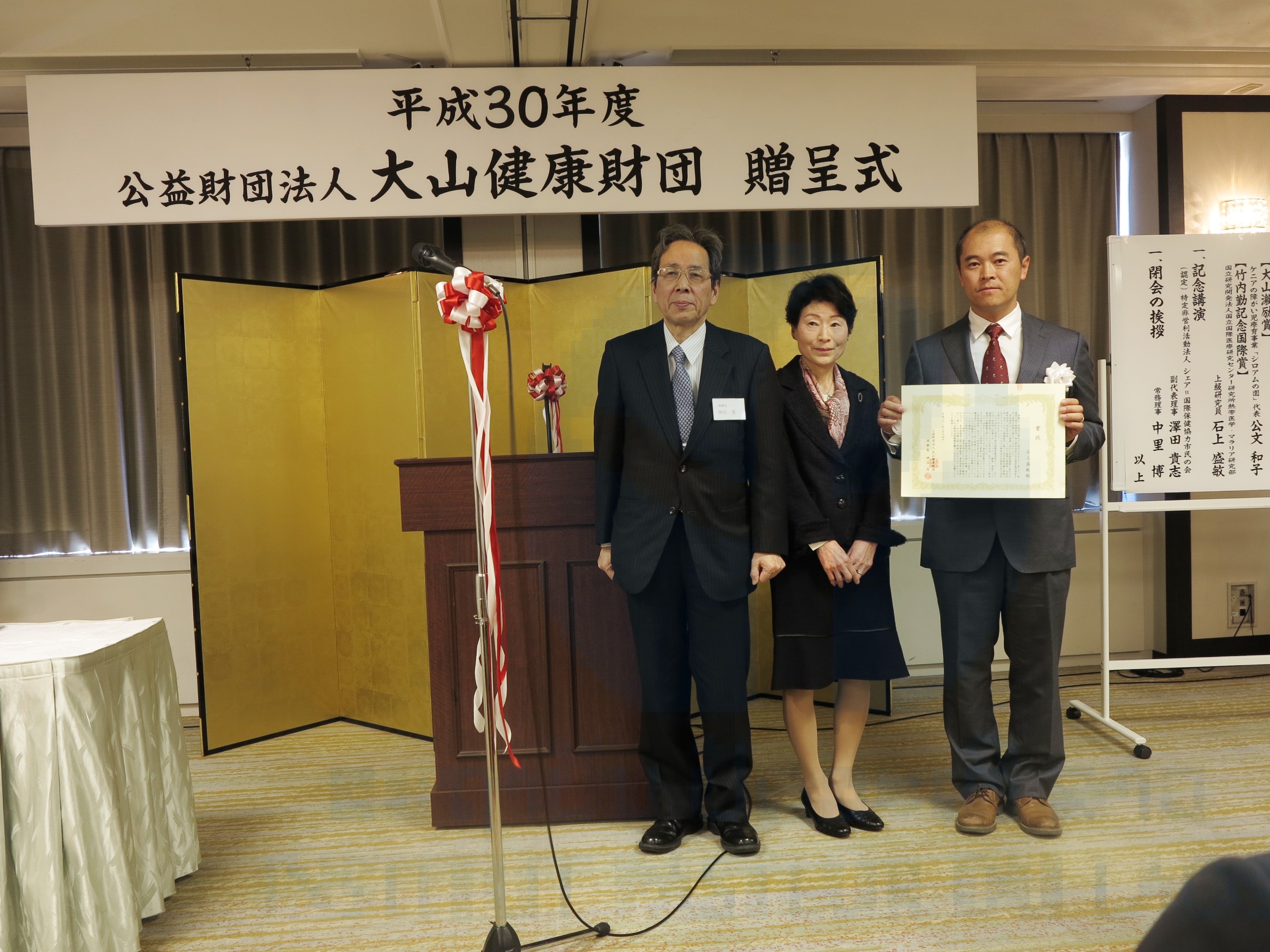
Professor Kamiya Shigeru, President of the Ohyama Health Foundation presented Professor Tsutomu Takeuchi International Memorial Award to Dr. Moritoshi Iwagami at the award ceremony in Tokyo, Japan on 14th March 2019. Dr. Iwagami was honored with his research career on the field of Parasitic Diseases and Tropical Medicine in developing countries, including JICA/AMED SATREPS Project for Parasitic Diseases in Laos at IPL. Mrs Reiko Takeuchi, wife of Professor Takeuchi also attended the award ceremony.
—————————————————————————————————————————————————————————————–
10th January 2019
L’Institut Pasteur a organisé, le 7 décembre 2018, une cérémonie en l’honneur des jeunes diplômés ayant réalisé leur thèse de science à l’Institut Pasteur au cours de l’année universitaire 2017-2018. Cette cérémonie existe depuis 2013. Ouverte par une conférence exceptionnelle du Pr. Serge Haroche, prix Nobel de Physique 2012, l’édition 2018 a mis à l’honneur, parmi ces jeunes scientifiques pasteuriens, cinq qui ont effectué leur thèse dans un institut membre du Réseau International des Instituts Pasteur.
« Nous sommes heureux et fiers d’accueillir sur le campus de l’Institut Pasteur ces jeunes diplômés qui incarnent une nouvelle génération de chercheurs du Réseau International des Instituts Pasteur» a déclaré Marc Jouan, Directeur International de l’Institut Pasteur.
Les cinq doctorantes ont réalisé leurs travaux dans les instituts Pasteur de Tunis, de Nouvelle-Calédonie, de Madagascar, Hellénique et au Pôle de Recherche Pasteur -Université de Hong-Kong sur des thématiques aussi variées que la caractérisation d’activités biologiques de protéines de glandes salivaires de tiques, l’étude des vecteurs d’arbovirose dans la région pacifique ou de la contribution des anophèles dans la propagation du parasite Plasmodium à Madagascar, l’étude des récepteurs liés aux maladies du système nerveux et l’étude de facteurs impliqués dans la réponse immune au cours de l’infection.
Élodie CALVEZ – Amélioration des connaissances sur les épidémies d’arboviroses en Nouvelle‑Calédonie et dans la région Pacifique : importance du vecteur régional Aedes aegypti
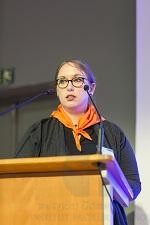
Doctorat en Biologie des organismes
Unité de Recherche et d’expertise Dengue et Arbovirus, Institut Pasteur de Nouvelle-Calédonie
Université́ de Nouvelle-Calédonie, École Doctorale du Pacifique
Après un Master 2 en Microbiologie Fondamentale et Appliquée obtenu en 2012 à Brest, Élodie Calvez rejoint l’Institut Pasteur de Nouvelle-Calédonie (IPNC) pour travailler en tant qu’ingénieure dans le cadre d’un Volontariat de Service Civique. Pendant deux années, au sein de l’Unité de Recherche et d’expertise Dengue et Arbovirus, elle a travaillé sur divers projets, tels que l’étude génétique d’Aedes aegypti, principal vecteur d’arbovirus dans le Pacifique et a également commencé à étudier le virus Zika qui émergeait dans la région Pacifique.
À la suite de ces deux années, Élodie a souhaité réaliser sa thèse à l’IPNC. C’est en 2015 qu’elle débute son doctorat sous la direction de Myrielle Dupont-Rouzeyrol, sur un sujet principalement centré sur les interactions virus/vecteur, et en particulier sur la transmission des virus de la dengue et du Zika par le vecteur Ae. aegypti. Au cours de ces trois années de thèse, elle a complété sa formation en réalisant un stage de six mois à l’Institut Pasteur, dans l’unité Arbovirus et insectes vecteurs, dirigée par Anna-Bella Failloux et en participant au cours « Insectes vecteurs et transmission d’agents pathogènes » à l’Institut Pasteur.
Après l’obtention de son doctorat, Élodie a souhaité poursuivre ses recherches dans le Réseau International des Instituts Pasteur. Elle a ainsi rejoint l’unité Arbovirus et Maladies Virales Emergentes dirigée par Marc Grandadam à l’Institut Pasteur du Laos. Elle y étudie la caractérisation génétique et la transmission des arbovirus, et plus particulièrement le virus de la dengue, par les insectes vecteurs locaux. Élodie participe aussi activement à la formation en laboratoire du personnel lao.
——————————————————————————————————————————————————————————————–
07th September 2017
Malaria Consortium and Mahidol University set up an entomology scholarship in memory of Dr Sylvia Meek, former Malaria Consortium Technical Director, to honor her outstanding work to help reduce the impact of vector borne diseases. Somsanith Chonephetsarath, laboratory technician in the Medical Entomology and Vector Biology Department at Institut Pasteur du Laos, was successfully awarded the Dr Sylvia Meek Scholarship, which will allow her to take on a two years’ masters.
Members of the Fondation Mérieux Delegation including Mme Mireille Guigaz (Vice Chair of the Global Fund), Prof. David Heymann (Vice President of the Board of Directors of the Fondation Mérieux), Dr. Francois Xavier Babin (Director of International Development, Fondation Mérieux) and Dr. Laurant Malato (Representing the Fondation Mérieux in Lao PDR) visited IP Laos on the 2nd of July 2014. Dr. Ponmek Dalaloy (Former Minister of Health of Lao PDR and Honerary Chairman of the Board of IP Laos), Dr. Paul Brey, (Director of IP Laos) and Dr. Darouny Phonekeo (Deputy Director of IP Laos) presented the research activities ongoing at IP Laos and also provided a guided tour of the research and training facilities.
Dr. Marc Grandadam (Head of the Arbovirology and Emerging Viruses lab at IP Laos) explaining the research activities of his group to Mme Mireille Guigaz, Prof. David Heyman and Dr. Francois Xavier Babin.
——————————————————————————————————————————————————————————————–
23th May 2014
The Institut Pasteur du Laos (IPL) and the Disease Prevention Institute of Military Health Department (DPIMHD), Ministry of National Defense signed a Memorandum of Understanding for research and training in the areas of infectious/parasitic disease diagnostics, vector control and biomedical research. IPL and the DPIMHD have previously engaged in training in the area of dengue virus diagnostics and serotyping, as well as vector control. The MOU will allow DPIMHD staff to carry out on-the-job training at IPL and also allow IPL staff to provide training at the Lao Army hospital laboratories and training facilities. The MOU will also allow the parties to write joint grant proposals.
The signatories were Lt. Col. Dr. Xaysaveng Phommatha, Chief of the Disease Prevention Institute, on behalf of the Lao Department of Military Health and Dr. Paul Brey, Director of IP Laos, Lao Ministry of Health. Witnesses were Col. Dr. Bounteun Bandavong Chief of the Department of Military Health and His Excellency, Dr. Ponmek Dalaloy, former Minister of Health of Lao PDR and Honorary Chairman of IP Laos. Representatives of the Cabinet and Department of Communicable Disease Control of the Ministry of Health and Members of the Lao Department of Military Health also attended the ceremony.
——————————————————————————————————————————————————————————————–
- IP Laos Group photo in the garden of the Riverside Boutique Hotel.
- Scientific, Technical and Administrative exposés at the Riverside Boutique Hotel conference center.
- Scientific, Technical and Administrative exposés at the Riverside Boutique Hotel conference center.
- Team building games in the garden of the Riverside Boutique Hotel
- Team building games in the garden of the Riverside Boutique Hotel
TEAM BUILDING WORKSHOP VANG VIENG, LAOS
It is well know fact that an organization is only as good as its staff! The administration of IP Laos highly values its young staff, as they will guarantee the future of Institut Pasteur of Laos. As such, we recently organized a 3-day retreat for the entire staff (Scientific, Technical, Administrative & Logistic) at the Riverside Boutique resort in Vang Vieng City, 3 hours outside the capital. The idea was to get to know each other better, to better understand the job and responsibilities of each person and how each individual contributes to the overall success of IPL. The first day was spent giving brief exposés (all in English) on the scientific, technical and administrative work ongoing at IPL. The second day was dedicated to mixed group team building exercises that obliged the staff to work together to find solutions to complex problems. We also had sporting events, kayaking down the Nam Song River and swimming in the hotel pool. These 3 days together brought the staff closer together help to further forge a solid IP Laos team. Funds permitting we plan to do this type of retreat on an annual basis.
——————————————————————————————————————————————————————————————–
MALVEC consortium meeting, 23-24 april 2014, Vientiane Lao PDR.
Dr H. Overgaard (Institut de Recherche pour le Developpement, Kasetsart University Thailand), Dr V. Corbel (IRD, Kasetsart University Thailand), Dr P. Brey (Institut Pasteur du Laos, director), Dr S. Nambanya (National Center of Malariology, Parasitology and Entomology), Dr S. Marcombe (Institut Pasteur du Laos).
The MALVEC project “Characterization of insecticide resistance in malaria vectors in Lao People’s Democratic Republic and Thailand and capacity building in medical entomology” aims to improve strategies for prevention and control of malaria in Laos and in border areas with Thailand. The project has the following specific objectives: 1) to determine the distribution of vectors and their role in malaria transmission; 2) to determine the levels and mechanisms of resistance to conventional insecticides; 3) to determine the impact of environmental factors on the spatial distribution of vectors and selection of resistance, and 4) to build capacity in medical entomology (malaria) in Thailand and Laos. The results for year 1 of the project were presented and discussed between the partners and invited experts in malaria field.
MALVEC meeting participants, Vientiane, Lao PDR.
19th March 2014
Signing of Memorandum of Understanding between Institut Pasteur du Laos (Dr. Paul Brey, Director) and Luxembourg Development Agency (Peter Heimann, Chief Technical Advisor) for cooperative projects in the area of Vaccine Preventable Diseases. The Government of the Grand Duchy of Luxembourg is a major donor of the Institut Pasteur of Laos.
19th March 2014
Signing ceremony by Japan International Cooperation Agency (JICA) and the Lao Ministry of Health for the SATREPS project on “Development of Innovative Research Technique in Genetic Epidemiology of Malaria and Other Parasitic Diseases in Lao PDR for their Containment of their Expanding Endemnicity”. This project will be carried out for the most part at Institut Pasteur of Laos and Centre for Malariology Parasitology and Entomology for a period of 5 years. This technical assistance is important and timely given the fact that Plasmodium drug resistance may be suspected in Lao PDR and the region and could impact the world malaria situation. Dr. Shigeyuki Kano and his team from National Center for Global Health and Medicine (NCGM), Tokyo are working at the forefront of this subject, will establish a lab within Institut Pasteur of Laos. Furthermore, NCGM and Institut Pasteur of Laos have composed a team of experts to address the subject of Malaria drug resistance, but also on the study of other parasitic diseases, such as Schistosomiasis and Opistorchiasis, which also plague Lao PDR.

